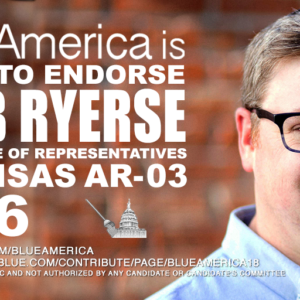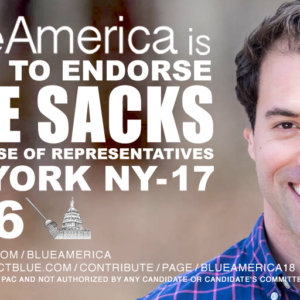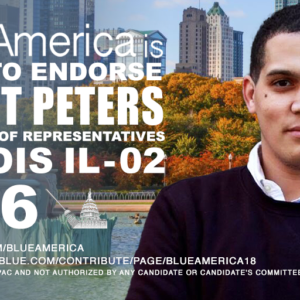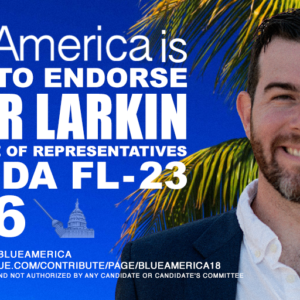When I first met Montana state Rep. Franke Wilmer, I walked away thinking how great it would be to have a woman in Congress who is so much like Barbara Ehrenreich. I’ve gotten to know her a lot better now– and I’m more impressed than ever. Her legislative role models tend to run more in the direction of Jeannette Rankin, a Montanan who was also the first woman elected to Congress (from anywhere), and populist lion Pat Williams. Digby, John and I are very enthusiastic about welcoming Franke today as our newest Blue America endorsee. Please be sure to join us below in the comments section at 11am (PT), noon in Montana, to meet Franke for a live-blogging session. If she impresses you the way she has me, please consider contributing to her campaign at the Blue America ActBlue page here.
Let’s talk about security– the job we entrust our elected officials with first and foremost. Security is Franke’s field. Aside from serving in the state legislature, she’s a professor at Montana State University teaching courses on International Human Rights, International Law, International Relations Theory and the Politics of War and Peace and she’s written three books and has traveled to 56 countries as either an invited guest lecturer or for her field research, including five trips to the former Yugoslavia beginning during the war there in 1995. Let’s face it, there are so many ways the policies formulated in Congress are headed in the wrong direction on domestic and foreign policy.
But just as important as her academic accomplishments and record of public service are her life experiences. In her early 20s, Franke was a divorced single mother with no child support and few prospects. All she knew was waitressing, and she relied on that to support herself and her daughter while completing her college degree. It took her 16 years, often working two jobs and even 2 years working as a carpenter. “I know what it’s like not to be able to afford health insurance,” she told me last year when I first talked with her. “I know what it’s like to take a pocket full of tips to the energy company to pay my heating bill.”
Let’s look at two aspects of security Franke is highlighting in her congressional campaign– Social Security and national security. If we don’t elect enough candidates with clear and intelligent voices, a strong base of knowledge and a willingness to look at the facts through the lens of progressive values, these two issues are at very high risk of misguided policies (privatization and more wars) with disastrous consequences. I asked Franke to discuss Social Security first.
Social security spending didn’t cause this recession and it’s wrong to use the recession as a pretext for destroying one of the most successful federal programs. Initially a modest program during the New Deal, Social Security and Medicare (after 1965) were ultimately responsible for reducing poverty among those 65 years of age and older from 35% in 1960 and 1995 with similarly steep declines dating back to 1939. There have historically been surpluses and deficits and the current deficit is not particularly large when historical fluctuations are taken into account.
Social Security isn’t broken. It has been weakened and strengthening it would not be difficult. But we need strong and clear-headed Senators and Representatives to make this case. It should first of all be evaluated off budget, apart from the rest of federal spending because the logic of the system is more like a retirement system than an annually budgeted item. Segregating Social Security would also enable us to have a clearer view of our other current budgetary priorities, from education to
national defense. Including Social Security “on budget” overstates or understates the overall balance of the federal budget.</blockquote>
Largely due to her experiences in the former Yugoslavia, Franke has become something of a national security wonk. She teaches about it in his classes and talks about it on the campaign trail.
<blockquote>At the time of the 9/11 attacks, almost everyone in the national security policy community was thinking in terms of defending the U.S. against threats abroad. For the moment, let’s set aside the problem of the military-industrial complex and the issue defense spending to protect (private) U.S. commercial interests. The problem with pre-9/11 thinking was that it did not anticipate threats from non-state agents or actors, like al Qaeda, acting inside the United States.
So immediately, national security people– especially those advising President Bush– reinterpreted the attacks so that the logic of our response could resemble a response to an attack by another country. Again, there’s a much larger discussion we need to have about the motives for the U.S. intervention and occupation in Iraq and we’ll set those aside for now. The two issues I want to talk about are (1) that the “WMD” used on 9/11 were box cutters and pilot licenses and (2) that the real problem of nuclear proliferation which could have been addressed was sidelined by a policy that reconstructed the threat as a country-to-country conflict with Iraq.
The first problem means that we now check for box cutters, questionably obtained pilot licenses, or matchsticks and flammable liquids hidden in shoes and toiletry bags, but we are entirely missing the point. It is the unexpected and surprising use of ordinary objects that makes them such a threat.
More importantly, we have become complacent about the expansion of government authority and surveillance to the point where our most fundamental civil liberties have been compromised in unprecedented ways without the least bit of objection, much less outrage. This is true from the creation of a legal “no-man’s land” in Guantanamo to the Real ID to the Patriot Acts (the first was rejected unanimously in the Montana state legislature), to the suspension of habeas corpus for U.S. citizens in the most recent Defense Authorization Act.
The second problem is that the bone-chilling threat of nuclear material and technology falling into the hands of someone willing (OK– crazy enough) to use it is just as high as it was before 9/11. It only takes one crazed leader or one non-state terrorist group to destroy the world. We may not achieve 100% security, but we need to know where the nuclear material is and who has it. Most importantly, if the unthinkable threat were made, we must be able to “talk them down off the ledge” before they jump and take us all with them.</blockquote>
So… meet you below, in the comments section (noon, Mountain Time) to see how Franke thinks Congress should deal with our security. And please do consider helping us get her into Congress… here at the Blue America page.








Comments